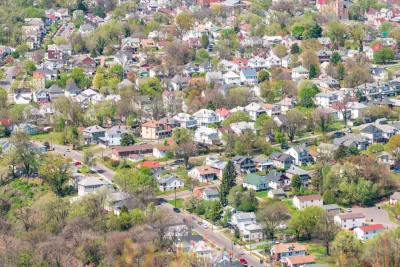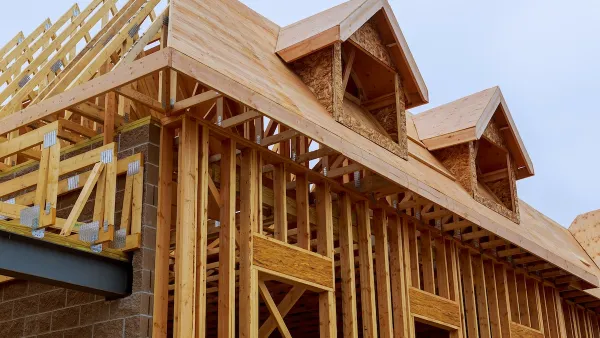As the state's real estate costs rise, community land trusts struggle to access funding and land in order to build more affordable housing.

The rapid rise in housing costs in Northern Virginia's Blacksburg "has sent local officials searching for solutions, making the town of just 15,000 permanent residents the latest Virginia locality to experiment with a community land trust," according to Wyatt Gordon of Greater Greater Washington. Kim Thurlow, who works with the Town of Blacksburg on housing initiatives, says demand is high while supply is limited. "We are a small college town experiencing really rapid growth due to the university, the former alumni that see our area as a potential investment and of course the innovative businesses that are being spun off from the university. If you’re a first time home buyer, you’re getting squeezed out of town."
But a recent initiative that created a community land trust has stalled due to a lack of fundraising capacity. While "[t]here are a number of potential funding sources for the housing development side," Thurlow says, "none of them are set up to pay for the operational costs needed to have a staff that would offer support to the homeowner long-term."
CLTs maintain affordability by never selling the land underneath the housing and splitting the earned equity with the homeowner when they sell the structure. Although the model developed in rural Georgia as a way for Black farmers to protect their land from the forced sales and seizures which have long hindered people of color from accruing wealth in this country, CLTs have only recently made their way to Virginia via the movement for affordable housing.
Acknowledging the uneven pace of growth between home prices and wages, "[t]he community land trust model creates homes that are not allowed to increase in cost at the same pace as the market," says Julia McNally, program director for the Virginia Statewide CLT, the state's third such entity and the only one not focused on one specific community.
While acquiring land is expensive and difficult for CLTs, cities can help by donating or selling low-cost parcels of land to the land trusts. According to Erica Sims, CEO of the Maggie Walker CLT, "[m]unicipal contributions of land are so important because that takes one of our biggest costs of providing more affordable housing out of the equation."
To improve their prospects, Virginia CLTs are now pushing for a real estate tax exemption that would further reduce costs for CLTs and allow them to build more affordable housing at a lower cost.
FULL STORY: Can community land trusts help solve Virginia’s housing crisis?

National Parks Layoffs Will Cause Communities to Lose Billions
Thousands of essential park workers were laid off this week, just before the busy spring break season.

Retro-silient?: America’s First “Eco-burb,” The Woodlands Turns 50
A master-planned community north of Houston offers lessons on green infrastructure and resilient design, but falls short of its founder’s lofty affordability and walkability goals.

Delivering for America Plan Will Downgrade Mail Service in at Least 49.5 Percent of Zip Codes
Republican and Democrat lawmakers criticize the plan for its disproportionate negative impact on rural communities.

Test News Post 1
This is a summary

Test News Headline 46
Test for the image on the front page.

Balancing Bombs and Butterflies: How the National Guard Protects a Rare Species
The National Guard at Fort Indiantown Gap uses GIS technology and land management strategies to balance military training with conservation efforts, ensuring the survival of the rare eastern regal fritillary butterfly.
Urban Design for Planners 1: Software Tools
This six-course series explores essential urban design concepts using open source software and equips planners with the tools they need to participate fully in the urban design process.
Planning for Universal Design
Learn the tools for implementing Universal Design in planning regulations.
EMC Planning Group, Inc.
Planetizen
Planetizen
Mpact (formerly Rail~Volution)
Great Falls Development Authority, Inc.
HUDs Office of Policy Development and Research
NYU Wagner Graduate School of Public Service





























